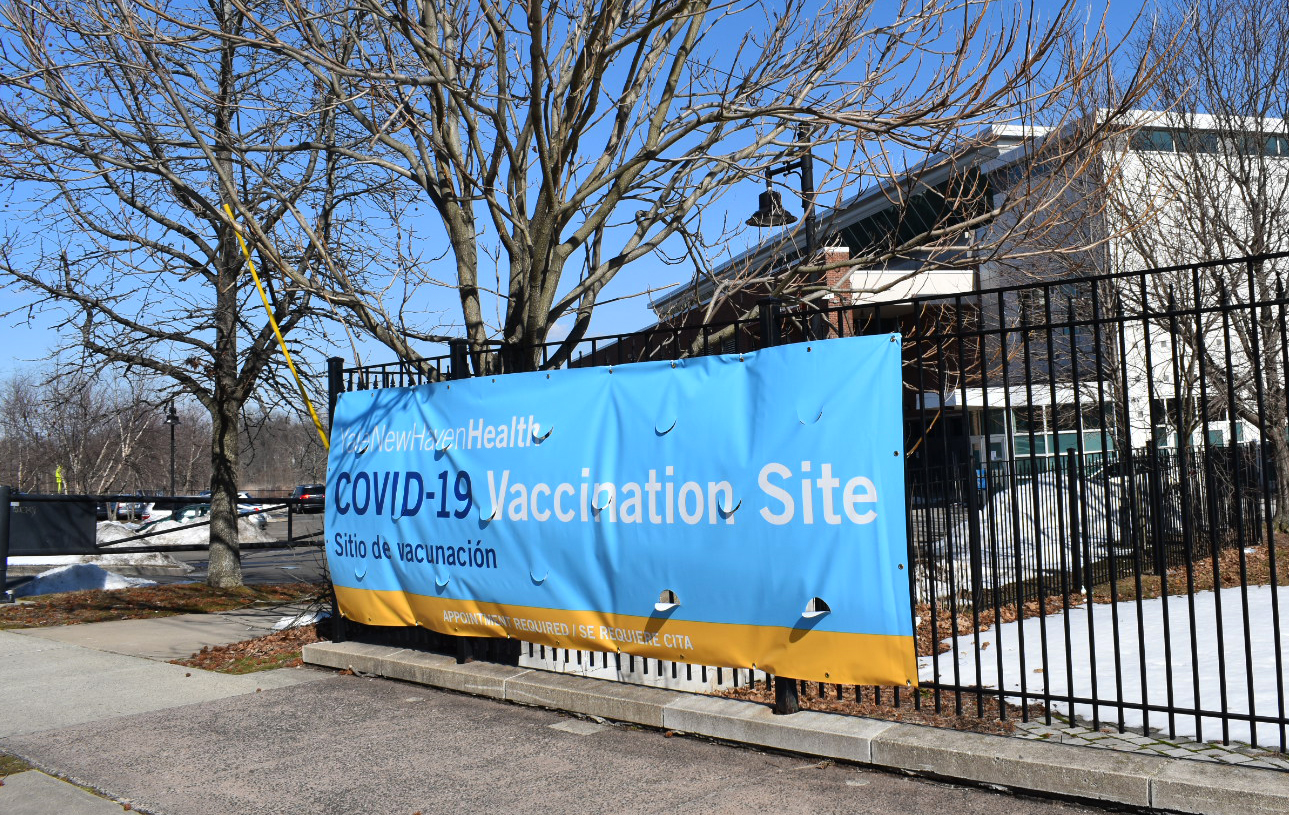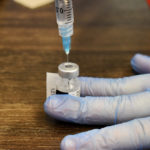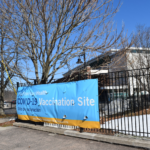Student vaccine availability limited, uncertain despite college clinic announcement, eligibility expansion

Regina Sung, Contributing Photographer
Most Yale students have been eligible for COVID-19 vaccines in Connecticut since Apr. 1, but leaders of Yale Health and the Yale New Haven Health System still have questions for the state of Connecticut on vaccine supplies for students, which have fallen far short of demand as Yalies scramble to get a shot wherever they can.
And while Gov. Ned Lamont recently announced plans to hold Johnson & Johnson COVID-19 vaccine clinics for college students in May, it remains unclear when — or if — Yale will receive a student-specific supply.
While the University has the capacity to administer 1,000 doses per day, Yale’s ability to vaccinate students and other affiliates relies almost entirely on the supply it receives from the state. Nanci Fortgang, director of Yale’s COVID-19 vaccine program, told the News that since December, Yale Health and YNHHS have both been designated as vaccine providers for the state. As such, they have each received direct, separate vaccine supplies from Connecticut’s Department of Public Health for almost five months.
But for the week of Mar. 29 — the week most Yale students became eligible — YNHHS had to provide Yale Health’s vaccine allocation through indirect supply because Yale Health did not receive any doses from the state, Fortgang said. Although she explained that the University’s vaccine program expects that the Department of Public Health will continue to directly supply Yale Health’s vaccination efforts in following weeks, they are waiting to hear on whether they will be receiving vaccines specifically for students.
Madeline Wilson, chief quality officer for Yale Health, declined to specify the number of doses Yale Health has received thus far, citing state guidance against disclosing that information.
“We are anxiously waiting for confirmation from the Governor and DPH specifically regarding the process,” Fortgang wrote in an email to the News. “As of [April 5], we do not have any specific information or confirmation that Yale Health will be designated as a vaccine provider for students or if we will have supply.”
Richard Martinello, medical director of infection prevention at Yale New Haven Hospital, told the News that the University wants to provide the vaccine to all community members, but that its ability to do so depends on the allocations it receives from the state. Yale Health and the Yale New Haven Health System are the two certified vaccine distributors under the broader Yale umbrella. Yale Health currently provides vaccines only to members of the Yale community and Yale Health members, while YNHHS is also vaccinating the broader state community. The University has consistently underscored that students can and should pursue non-Yale vaccination options through the state or local pharmacies.
Demand for vaccines has been consistently larger than supply, especially as an additional 1.3 million state residents — those between the ages of 16 and 44 — became eligible for vaccine appointments on April 1. This has propelled Yale students into a scramble to obtain vaccines from any open provider in the state.
Yale officials are trying to get the vaccine distributed as widely as possible, Martinello added. Yale Health is trying to secure more doses so that it can vaccinate all Yale students before the end of the semester.
“As soon as we are notified, we are ready and anticipate that Lanman will be able to accommodate our students,” Fortgang wrote. “We have excellent throughput with the ability to provide up to 1,000 doses a day and are staffing up in anticipation.”
Yale Health serves tens of thousands of people, Martinello said, including retirees and family members of Yale affiliates. Fortgang added that Yale Health is also working with the Community Health Care Van, which was created during the AIDS epidemic and has since been used in health outreach statewide, to staff vaccine clinics in Fair Haven and New Haven alike. Additionally, Yale Health is also assisting Fair Haven’s efforts to vaccinate homebound populations and others who may encounter difficulties accessing a vaccine site.
During a March 30 press conference, YNHHS CEO Marna Borgstrom mentioned that the system does not currently have a clear picture of how much of which type of COVID-19 vaccines they will be getting when. This allocation is entirely coordinated by the state and not typically divulged more than a week in advance.
Thomas Balcezak, YNHHS chief clinical officer, noted that he expects the federal government to help ensure that colleges and surrounding health care systems receive sufficient vaccine supply to facilitate student vaccinations. Because of the densified living conditions in college settings, he said, low rates of student vaccination could give rise to the spread of COVID-19.
“These colleges are congregate settings, where people are close together, and that’s a risk for transmission,” Balcezak said. “I think we’re going to see the federal government try to make some efforts to try to make some direct allocations to these settings and try to get folks back in school.”
For his part, Gov. Ned Lamont recently announced plans for Johnson & Johnson COVID-19 vaccine clinics to be held in May specifically for college students in Connecticut. Fortgang explained that the Johnson & Johnson COVID-19 vaccine has been chosen for the state’s anticipated clinics because it requires only one shot. This eliminates the need for a follow-up vaccination and could, in theory, allow students to leave campus completely vaccinated by the end of the semester.
However, just because these clinics are scheduled for May, that does not mean that students who are able to get vaccine appointments before then should wait, Balcezak stressed. Regardless of which kind of vaccine becomes available to them, he said, any person who is currently eligible should take their first opportunity to become vaccinated.
According to Fortgang, in addition to the clinics currently slated for May, Yale Health also has plans to operate vaccination clinics throughout the summer.
On their first day of COVID-19 vaccine eligibility, 16- to 44-year-olds in the state made a total of 100,000 vaccination appointments.
Rose Horowitch | rose.horowitch@yale.edu
Maria Fernanda Pacheco | maria.pacheco@yale.edu










